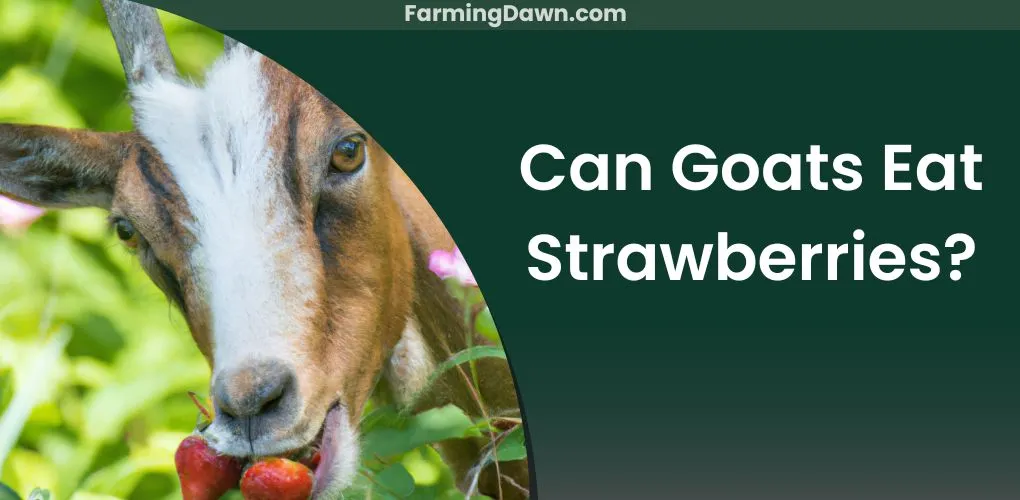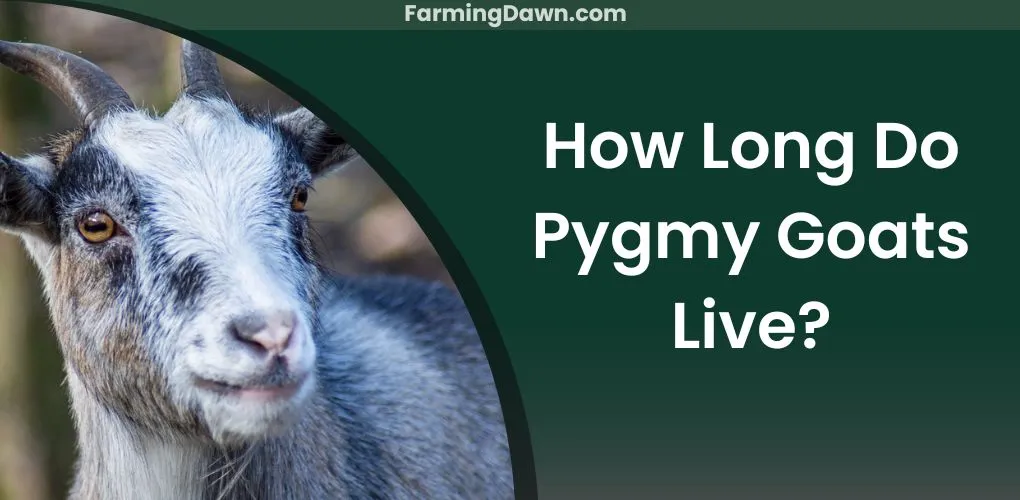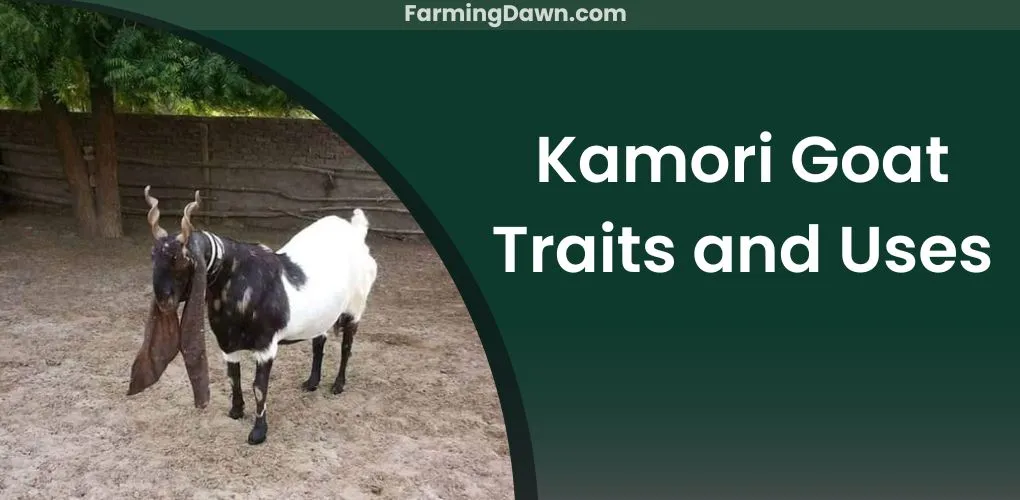Goats are unique animals that have a lot of personality and charm. They’re known for being active, curious, and capable of developing strong relationships with humans. But what sound does a goat make? Is it just a “baa” as most people think? It turns out there’s more to it than that!
It can be difficult to understand why goats do some of the things they do. After all, they don’t talk, at least not in any human language we know of. However, goats communicate through their own set of sounds and body language.
By reading these cues, you can decode what your goat is trying to tell you—whether they’re excited or scared, content or annoyed. So what exactly does a goat sound like when it talks? To get an idea of how complex goat communication is, I am going to explore everything from bleating to honking and even snorting.
What Sound Does A Goat Make?
Goats are vocal animals and make various sounds. The most common sound they make is ‘baa’, which is similar to the bleat of sheep. They also make other noises, such as grunting, snorting, moaning, and even humming. Depending on what kind of goat you have, their vocalizations may vary slightly in pitch or volume.
Goats tend to talk to each other more than humans do; when two goats meet after being apart for some time, they will often baa back and forth until they greet one another properly.
However, when startled or alarmed by something they’ll let out loud cries that can startle anyone within earshot! And, if goats become contented with their environment then they might emit low hums that show how relaxed they are. But one thing’s for sure: goat vocalizations are not only interesting to observe but also quite entertaining!
Goat Danger And Alarm Sound
Goats have a unique way of communicating with one another during alarming situations. The most common sound produced by goats is “baa”, but they also make other noises that indicate danger or alarm. When a goat senses danger, it will produce a loud snorting noise to alert the herd and warn potential predators away.
Goats may also emit an alarm call if they see something out of the ordinary in the environment. This call usually sounds like a short burst followed by a low-pitched, honking vocalization.
Thus, if you hear rapid snorting coming from your goats, this is likely an indication of danger and should not be ignored—goats use these sounds as signals of distress or warning signs to other animals in the area. On the other hand, if you hear more prolonged honking calls, then it’s likely just your goats expressing curiosity about something that caught their attention.
Goat Hunger And Thirst Sound
What sound does the goat make in hunger? When the goats are hungry, their stomachs rumble and growl like an epicurean’s dream. It’s a symphony of noise that speaks both to their hunger and anticipation for what’s coming next – delicious hay or sweet grain. But when they’re thirsty, it sounds like a desperate plea from parched throats; as if they could speak directly to you and ask for quenching water.
Their thirst sound is more urgent than their hunger sound – almost frantic in its insistence that someone should help them out with some liquid refreshment soon.
Goat Discovery Sound
Goat discovery sound means the sound produced by a goat when it discovers something. The discovery sound of a goat is quite different from the familiar hunger and thirst sounds. When goats discover something new or exciting, they tend to bleat in surprise with a high-pitched tone.
This vocalization can be heard when goats stumble upon food or toys, or get spooked by something unexpected. It’s one way for them to communicate their excitement! So, when someone asks you what sound does a goat make when they discover something, be sure to show your knowledge on this matter.
Goat Mating Sound
Goats are social animals, and just like humans, they engage in courtship when they want to mate. This type of behavior is accompanied by a variety of sounds and bleats, which differ depending on the goat’s gender. A male goat will often make loud grunting noises during mating season as a way to attract females or show dominance over other males.
On the other hand, female goats will usually produce softer, higher-pitched bleating sounds that indicate their readiness for breeding. All these sound signals can be heard from quite some distance away and help prospective mates find each other in large herds.
Goat Family Bleat Sounds
Goat mating sounds are well known, but what about the other vocalizations of a goat family? The goats in my herd have their own language and use bleats to communicate with each other. They also make a variety of different bleat sounds when they’re interacting with me or members of the flock.
These bleats can range from short single-note calls to long notes that carry through the air. It’s interesting to note that some younger goats may imitate adults’ bleat sounds even before they learn how to properly produce them on their own.
When I’m out working in my fields, it’s not unusual for me to hear an entire chorus of goat families bleating as they graze together. It’s quite amazing! There are distinctions between these various types of goat bleats and sounds; some signify distress while others indicate contentment or agreement between animals within the herd.
Goat Loneliness Sound
Loneliness sounds from goats are unique and poignant sounds. While many animals can express their feelings of sadness, the haunting bleat of a lonely goat sticks in the mind. From heart-rending cries to lonesome bellows, here are some ways that goats make loneliness sounds:
- A high-pitched whine or cry – this type of noise usually occurs when a goat feels isolated or alone.
- A low moan or groan – this sorrowful sound expresses deep distress or pain.
- A deep bellow – is often used as an expression of longing for companionship.
- An urgent bleat – this is usually heard when a mother goat is searching for her children who have gone astray.
- An aggressive snort – sometimes goats will vocalize with aggression if they feel threatened by another animal’s presence.
What Do The Different Goat Sounds Mean?
Imagine a world where goats are talking to each other with personalized, magical voices that no one else can understand! They’re communicating their feelings and needs in ways we humans simply can’t comprehend.
It may seem like animals speak only in tongues, but goat sound meanings have their form of communication. Different sounds indicate different emotions and behaviors, allowing for recognition among various members of the herd.
Distress and Concern
For example, when a baby goat cries out for its mother or siblings, it makes an urgent “maaaaa” noise which signals distress and concern.
Aggression
Similarly, certain types of low-pitched tones signify aggression among males fighting over territory or mates.
Understanding Sound Interpretation
To get into goat sound interpretation you need to be able to recognize changes in pitch and tone as well as pay attention to body language associated with the sounds being made.
Goats will use both vocalizations and physical gestures such as headbutting or striking with hooves when trying to communicate dominance within a group setting. It’s amazing how much symbolism comes through these simple yet powerful messages!
Cultural and Historical Perspectives on Goat Sounds
You may be familiar with goat bleating, but have you ever heard about the role of goat sounds in folklore and mythology? Goats have been associated with a variety of different noises, both traditional and modern. From ancient texts to contemporary music, goat’s cries can be heard in stories from all around the world. Let’s explore how these sounds have impacted our cultural and historical perspectives on goat sounds.
Goat sounds in folklore and mythology
Goats’ vocalizations have long been a part of folklore and mythology, inspiring tales of their mysterious power and deep symbolism. In some cultures, the bleating of goats is said to bring good luck or ward off evil spirits. In other stories, goats are symbols of strength or resilience in difficult times.
The sound of goat bells also has cultural significance, often signifying the status or wealth of their owners. Ancient texts such as The Odyssey also feature goat sounds prominent, used to symbolize themes like hospitality and renewal.
As such, goats’ sounds have come to represent a variety of meanings throughout history – from good fortune to spiritual strength – that continue to resonate with us today. To explore these themes further, we now turn to goat sounds in music and popular culture.
Goat sounds in music and popular culture
From ancient folklore to modern-day memes, the unique bleats and bells of goats have made their way into music and popular culture, bringing with them a range of meanings and associations. From hip-hop to EDM, goats are popping up in all sorts of genres. Artists have used goat sounds as an expression of their own identity or to evoke a particular emotion from their audience.
Goats also appear in ads, movies, video games, and other forms of entertainment. These appearances often carry connotations that reflect our relationship with animals and nature more broadly. Whether it’s nostalgia for the past or irreverence for the present-day status quo, goat sounds can bring a sense of authenticity and charm to any form of media.
What Sound Does A Mountain Goat Make?
Mountain goats are uniquely adapted to the challenging alpine environment of their native habitat. They have specialized vocalizations that help them communicate with each other and mark their territory. If you listen closely, you can hear a mountain goat call or bleat from miles away. This sound is similar to that of a cow mooing but much higher pitched and more melodic.
The range of sounds made by these animals includes loud snorts in times of alarm, low grunting noises during peaceful grazing, and sharp whistles emitted when they sense danger nearby.
Mountain goats also use different kinds of vocalization for communication between adults and young kids, such as high-pitched bleats and intense coughing grunts. Even though mountain goats live in harsh conditions, their calls still bring joy to hikers as they traverse through nature’s beauty.
What Sound Does A Goat Make In English?
In English, goats are commonly associated with the sound “bleat” or “baa.” It is frequently called a “bleating” or “baaing” noise to characterize the sound. Goats have a characteristic sound that they use to communicate, call out to one another, or show their presence or requirements.
Environmental Influences On Sounds Produced By Goats
Goats are known for their distinct bleating sounds, but what most people don’t realize is that the environment in which a goat lives can greatly influence the type of sound it makes. You should remember that just like humans, goats thrive best when they live in an enriching and supportive environment. The environmental influences on goats’ sounds come from both internal and external sources.
Internal Environmental Influences
Internally, the goat’s diet plays a key role in determining its vocalizations. If a goat is not getting enough nutrients or vitamins, this could lead to health issues such as malnutrition or dehydration, which will impact the sound produced by its voice box.
Furthermore, if a goat lives in an area where there is noise pollution or lots of other animals making loud noises, then its cries may be drowned out or muffled.
Externally Environmental Influences
Externally, the temperature of a goat’s surroundings can also affect how loudly it vocalizes. When temperatures get too cold for comfort, goats tend to make louder sounds than usual to alert others of their presence and keep warm during colder months.
Similarly, if a particular area is particularly dry due to a lack of rain or drought conditions, goats often cry more frequently and with greater intensity than normal as they search desperately for water sources near them.
Frequently Asked Questions Related To What Sound Does A Goat Make
Goats make a variety of sounds, each with its own meaning and context. Here’s what you need to know about goat sound identification:
What Are Goat Vocalizations Called?
Goats have three main types of vocalizations: bleating, screaming, and humming.
Which Sound Does A Goat Make When Angry?
When faced with aggression from another animal or human, goats may produce a loud hissing noise through their noses and mouths. Goats might also growl as a warning sign when agitated; usually, this type of vocalization will precede any other action taken against the source of discomfort.
What is the most common type of Goat Sound?
Bleating is the most common type of goat sound, and it is used for communication between goats as well as to express emotions such as distress or excitement.
When do Goats Scream?
Screaming is usually reserved for when a goat feels threatened or startled and can be heard from quite far away.
What does Goats Humming mean?
Humming is often used as an expression of contentment or comfort, but it also has other meanings depending on the context in which it occurs.
What Sound Does A Goat Make? Final Thoughts
It’s amazing the range of sounds a goat can make! From mating calls to angry bleats, these animals have plenty to say. While mesmerizing their sounds, it’s also important to take note of your goat’s behavior as well – this will give you insight into their mood or needs.
The way goats communicate is not only fascinating but also quite humorous at times. I’ve always found it ironic that one of the most common sounds they produce when mad or scared is an unmistakable “baa”! But seriously, with all this knowledge on goat communication under our belts, let’s take the time to listen more closely before we judge them too harshly.





